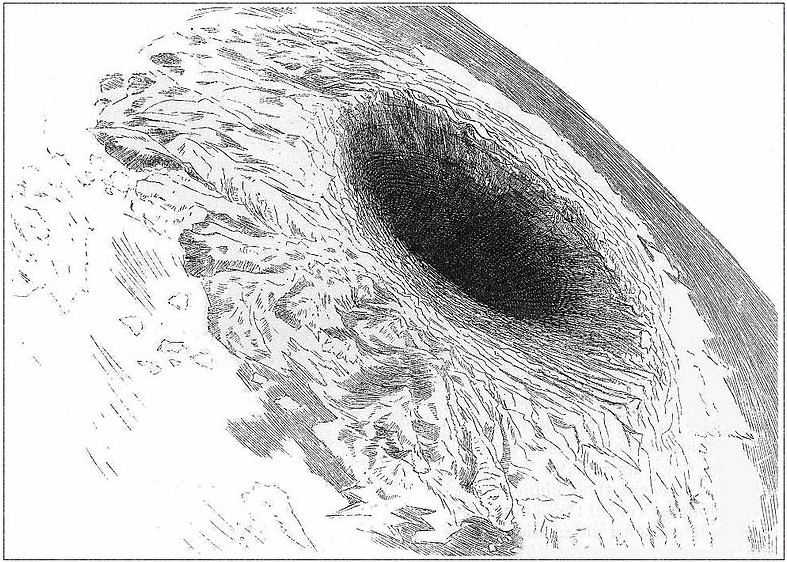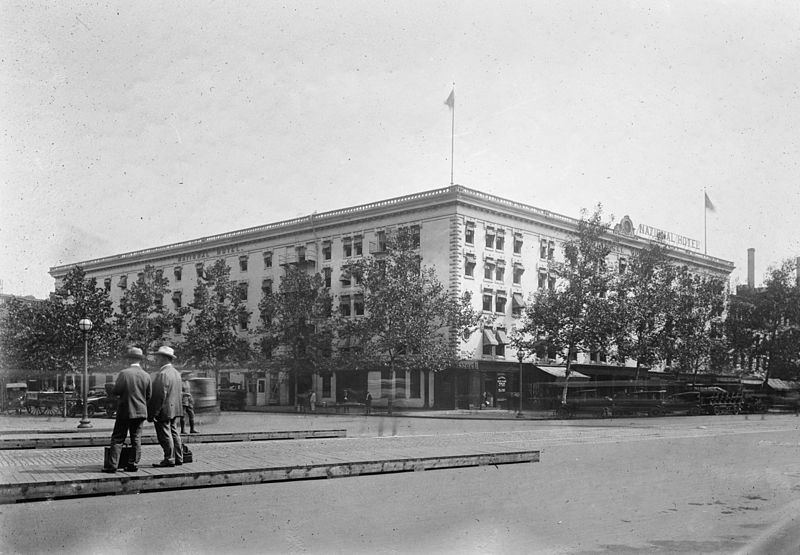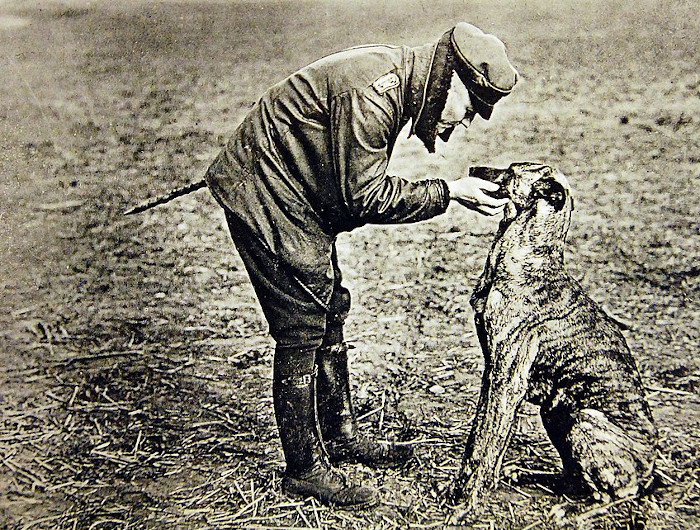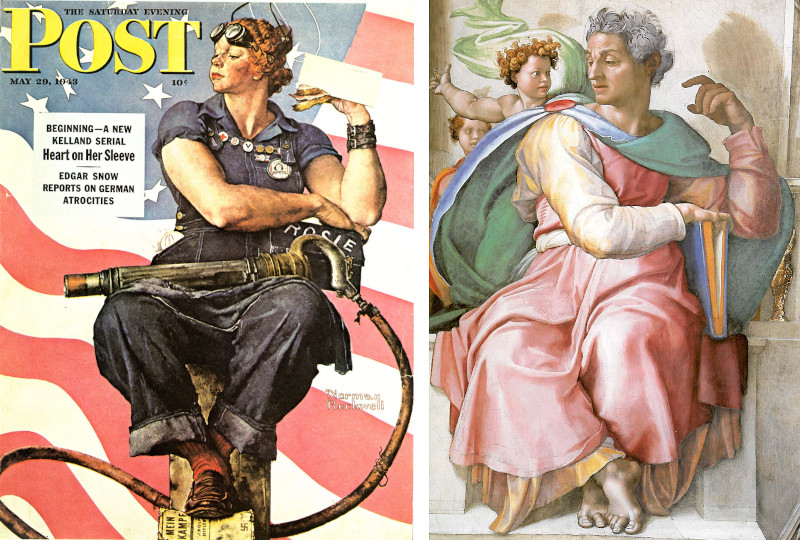
On May 10, 1933, in the Bebelplatz in central Berlin, members of the National Socialist Student Union burned 20,000 books, objecting to the “un-German spirit” of many Jewish, communist, and liberal authors. Joseph Goebbels declared that “the era of exaggerated Jewish intellectualism is now at an end … and the future German man will not just be a man of books … this late hour [I] entrust to the flames the intellectual garbage of the past.”
In 1995, Israeli sculptor Micha Ullman created a memorial room under the plaza, with empty shelves enough to accommodate 20,000 books. A plaque set into the cobblestones bears a quote by Heinrich Heine:
That was but a prelude;
where they burn books,
they will ultimately burn people as well.








